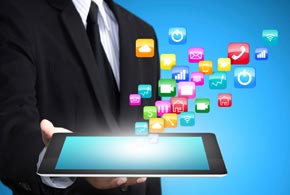It’s not exactly a news flash that technology moves forward faster than people do. The ATM was invented in the late 1960s, but it didn’t achieve widespread adoption until two decades later. The earliest smartphones appeared in the early 1990s, but the concept didn’t take off until 2007, when Apple introduced the iPhone.
Continental Airlines introduced the mobile boarding pass in 2007, but adoption has lagged. Right now, less than 1 in 6 passengers uses a mobile boarding pass.
A new report from Juniper Research predicts that the use of mobile boarding passes will more than double to 1 in 3 passengers by 2019. They haven’t always been so easy to use, though airlines have mostly perfected the process by now, thanks largely to dedicated mobile apps. Moreover, Jupiter predicts that 91 percent of airlines will offer mobile boarding passes by 2017.
Likewise, we’re seeing rapid adoption of this technology for trains, buses, cruise lines and hotels. Over the next few years, the resulting efficiencies and cost reductions are likely to be significant.
Near-Field technology will usher in even greater gains. In the travel space, it will eliminate the need for a boarding pass. The phone will store the ticket, reservation and baggage tag; the passenger will simply hold the phone up to a reader to board a flight.
Unfortunately, it’s now déjà vu all over again with mobile payment systems such as Google Wallet and Apple Pay. Despite technology that works really well and is simple to use, merchants are slogging their way toward adoption. Apple reports that more than 700,000 merchants support Apple Pay, but I’d estimate that perhaps 5 percent of the merchants in my spending circle have it set up—including many with wireless POS terminals that require no more than an update. Worse, many of the businesses that Apple says support the service, including Chevron and Albertsons, aren’t supporting it yet—at least, not at the locations I visit.
Still another frustration: associates who never received the memo that the retailer supports mobile payment systems. I most recently had this occur at an Office Depot. The cashier told me that the retailer does not accept Apple Pay, but when I held my phone up, the transaction sailed through.
There’s no question that we will eventually get to mobile wallets, and the vast majority of consumers will use them for boarding passes, hotels reservations, tickets for live events and electronic payments. The biggest barriers are cultural, including sloppy business practices.
Expect a bumpy ride.










